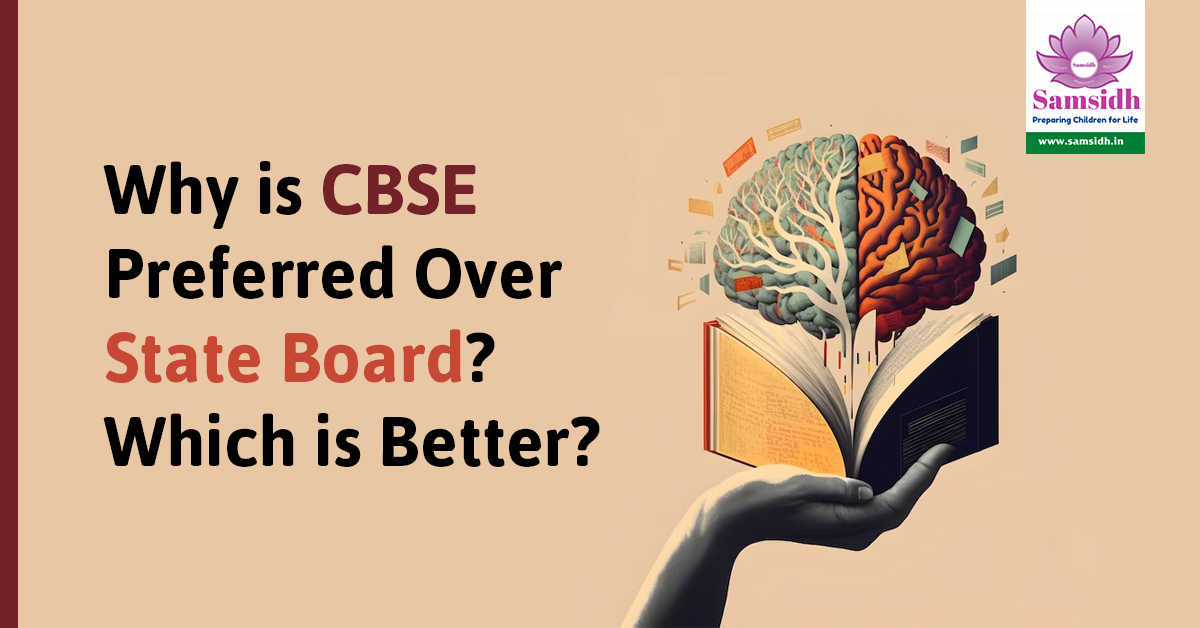Education is one of the most crucial investments for a child’s future. Choosing the right education system plays a significant role in shaping a child’s future. There are two main educational boards in India- the CBSE (Central Board of Secondary Education) and the state boards. Both these boards have their pros and cons and offer different educational experiences. In this article, we will explore the differences between CBSE School and state boards and the reasons why CBSE is preferred over state boards.
Education System
One of the major differences between CBSE School and state boards is the education system. CBSE is a centralized board that offers a uniform education system throughout the country. On the other hand, the education system in state boards is different for every state. This means that the syllabus, examination pattern, and grading system in state boards vary from one state to another.
Main Focus
CBSE and State boards also differ in their focus. CBSE aims to expose students to a globally relevant curriculum, which helps them prepare for higher studies,competitive exams, and pursue specialisations. State boards, on the other hand, are focused on making it easier and more economical for students to complete their school education. Therefore, state boards have a comparatively easier curriculum, which helps students score high marks and qualify for high cut-off percentages in good state colleges.
Read More: How to Make the Right Choice While Selecting CBSE School for Your Children
Language Mode
The language mode of CBSE is English and Hindi. CBSE believes these two languages are important to connect students with the rest of the world and help them understand the subjects better. On the other hand, the language mode in state boards is English and the regional language. While the regional language is important to connect students with their roots, CBSE’s language model helps students to connect with a larger audience.
Grading System
Another major difference between CBSE and state boards is the grading system. CBSE follows a CCE (Continuous and Comprehensive Evaluation) grading system in all central government schools. This grading system assesses students on various parameters like class participation, projects, and regular assessments. On the other hand, different grading systems are followed in different states in the state board.
Updating Syllabus
CBSE revises its syllabus almost every year to keep up with the latest developments in the subjects and to provide students with updated information. On the other hand, it generally takes much longer for state boards torevise their syllabus.
Examinations
The CBSE board conducts two main examinations- Class 10 – All India Secondary School Examination (AISSE) and Class 12 – All India Senior School Certificate Examination (AISSCE). On the other hand, the state boards conduct Class 10 – Secondary School Certificate (SSC) and Class 12 – Secondary School Certificate (HSC) examinations. Each has its value. However, due to the centralised nature of CBSE, the CBSE examinations are held in higher regard.
Read More: Why CBSE Curriculum is Ideal for Competitive Exam Preparation?
Wrapping Up
CBSE provides students with a well-rounded education of higher quality. While state boards are more localized, they may not provide students with the same quality of education as CBSE.
If you are looking for a high-quality education for your child, consider enrolling them in a Samsidh Group of Schools. With a focus on providing students with a well-rounded education, Samsidh Group of Schools follows the CBSE curriculum and prepares students for the future. With state-of-the-art facilities, experienced teachers, and a commitment to student success, Samsidh Group of Schools is the perfect choice for parents who want the best for their children. Contact us today to learn more about enrolling your child in one of our schools.

